The Mail fumed "We TOLD you so"; the Guardian was relieved that Islington appeared to be safe, but fretted about quinoa supplies; the Telegraph had a moan about Twitter; the Times's survival guide was hidden behind a paywall; the Express had the SAS confirming that Lady Di was murdered.
You can't beat a good parody. And Phillips is good. (To remind you just how good, here's the link to his 29 stages of a Twitterstorm).
But his job is made easier when papers live down to their stereotypes - as they have done this weekend in reporting the floods that have threatened or engulfed most - yes, most - of England and all of Wales.
For the Express there is, as there is every week in winter, another storm on the way. But never mind, here's a picture of Darcey Bussell and another of Barbara Windsor for good measure.
For the Telegraph, the floods bring an opportunity for a jolly picture of a couple of lads with brooms helping the clean-up, but are not as important an event as the number of foreign doctors working in the NHS.
Four Sunday papers splashed on the flooding, almost all had a picture on the front and most did a couple of pages inside. Coverage was hardly incisive, but remember the papers were put together by skeleton Boxing Day crews and contacting people in authority - or with authority - to add gravitas would have been tricky.
This morning there is a flood picture on every front page. Again, the people putting the papers together will have been working under the constraints imposed by the Sunday of a bank holiday weekend. But by this stage, they should have recognised that there was a big story to cover and called in reinforcements if necessary.
The trouble is, they didn't truly recognise that this was a big story.
Turning to the inside, the Sun continued punning on its spread, while the Mirror couldn't find enough of interest in the floods to fill even two pages.
Like the Telegraph and Independent, it chose not to give the story a clear spread - and then plonked Ed Balls's chairmanship of Norwich City and a story headlined "Whip bosses of bra show" on top of the ad. The truncated flood coverage included the paper's rugby correspondent bemoaning the fact that his first Christmas with his son was ruined and fears for future episodes of Emerdale if the film studio were inundated.
So what's the beef? What more is there to say? After all, nobody died.
Well, just imagine what the coverage would have been like had that map looked like this (excuse the clumsy photoshopping):
But there would also be a more forensic examination of possible causes and possible courses of action to prevent future calamity.
There would be proper consideration of issues such as climate change and land management - including tree felling and dredging - as well as flood defence policies and planning decisions that allow the building of homes on flood plains.
Thought would be given to where people who have been flooded out will live for the next nine months while their homes are made habitable - after all, there is supposed to be a housing crisis. There might be descriptions and case studies from those who have lived through this before of what the evacuees can expect.
There would be panels on where people can go to for help, financial and otherwise (in a Facebook post this morning, Christopher Everard reports on a £50m government scheme that is supposed to make funds immediately available to flood victims through local councils, yet this does not appear to have been widely publicised - most notably by the councils concerned).
There would be a full appraisal of the insurance industry with a breakdown of cover available or denied, premiums and how much each bit of a clean-up operation costs rather than the random millions and billions that are thrown out as "the cost of the floods".
There would be analysis of government policy on flood defences over the past 30 years; how much is being spent on what and where; which schemes are in the pipeline and whether they will still seem adequate in the light of recent experience; which schemes have fallen victim to austerity cuts.
And most of all, the papers would examine what the Environment Agency was up to; who are the people in command, both ministerially and in executive positions?
It would have taken more than a couple of pages to do that - and the space would have been found.
But not this time. Because this time the victims were in the North. In the regions. In the provinces. If it wasn't a holiday weekend, would the floods have been accorded even the attention they received this morning?
The Guardian also has three pages inside, including some good river height graphics and a bit of climate analysis.
But only one paper really removed its metropolitan blinkers to grapple with the scale of this story. The Mail not only devotes its entire front - plus a substantial turn on page 2 to the floods, it completes the package with four inside spreads.
But whatever you think of that notion, the Mail can hold its head up for consistency. Its coverage of successive floods has been extensive and its Christmas appeal has been to raise money for the victims. The appeal was launched on December 9 and by Boxing Day, more than £1m had been raised. There is a coupon in today's paper and links from its website for those who wish to contribute.
It's a rare day that SubScribe takes its hat off to the Mail. And, largely thanks to the failings elsewhere, that day has dawned.

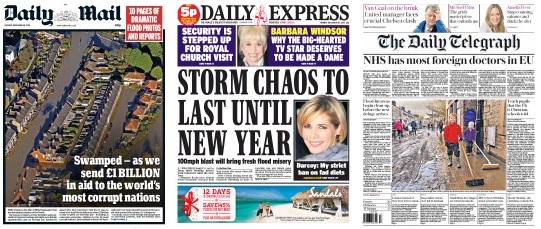


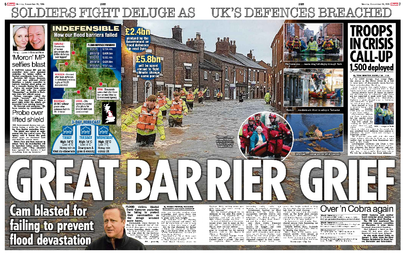
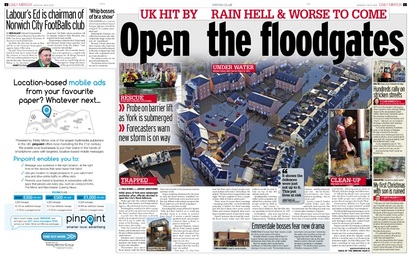
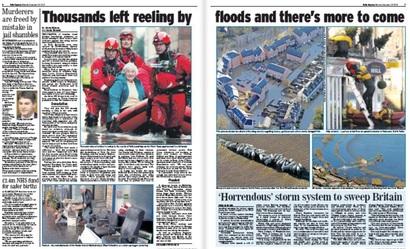

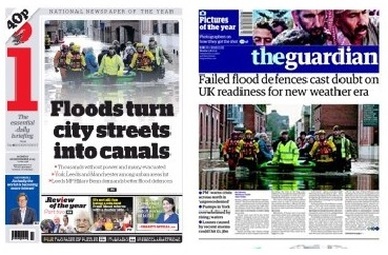
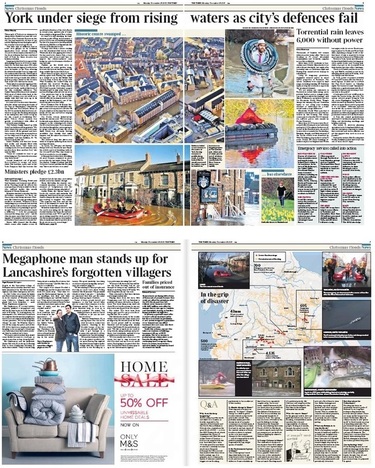
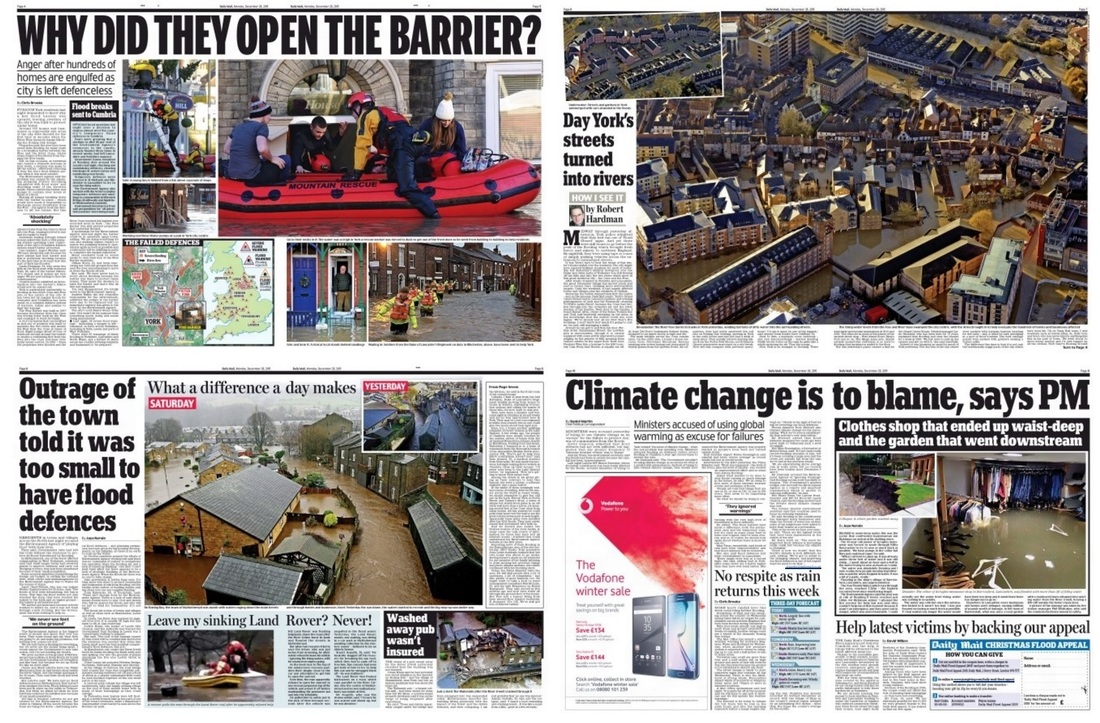


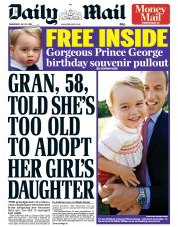








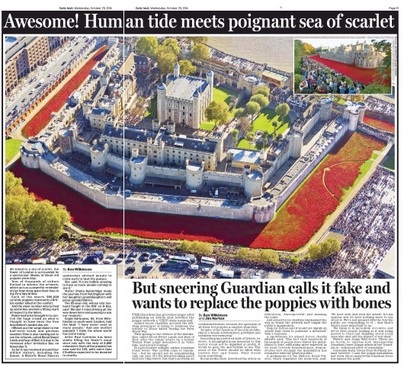


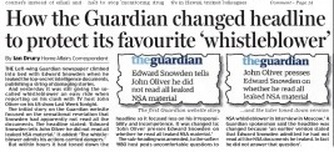
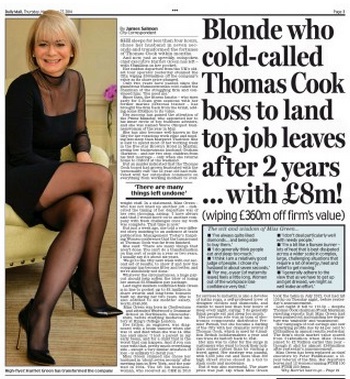

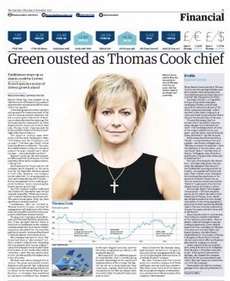

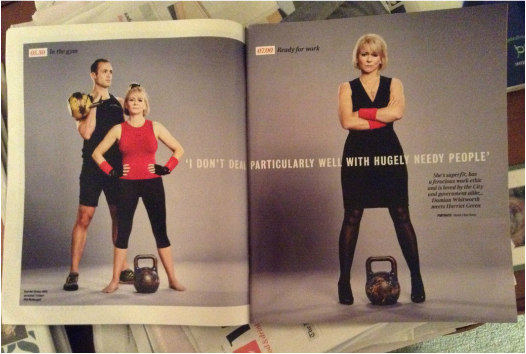
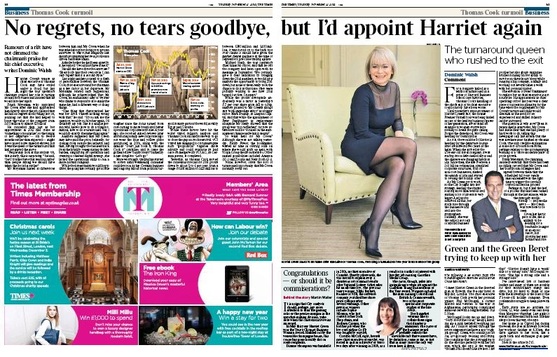
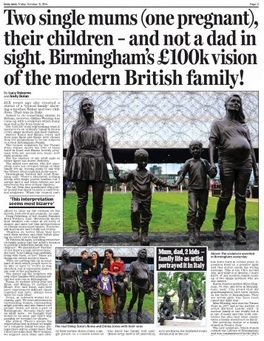
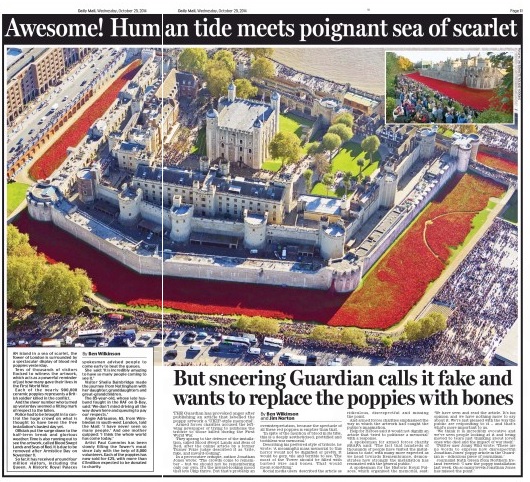
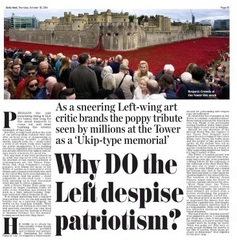






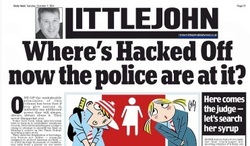




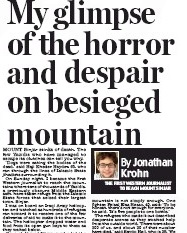

 RSS Feed
RSS Feed


